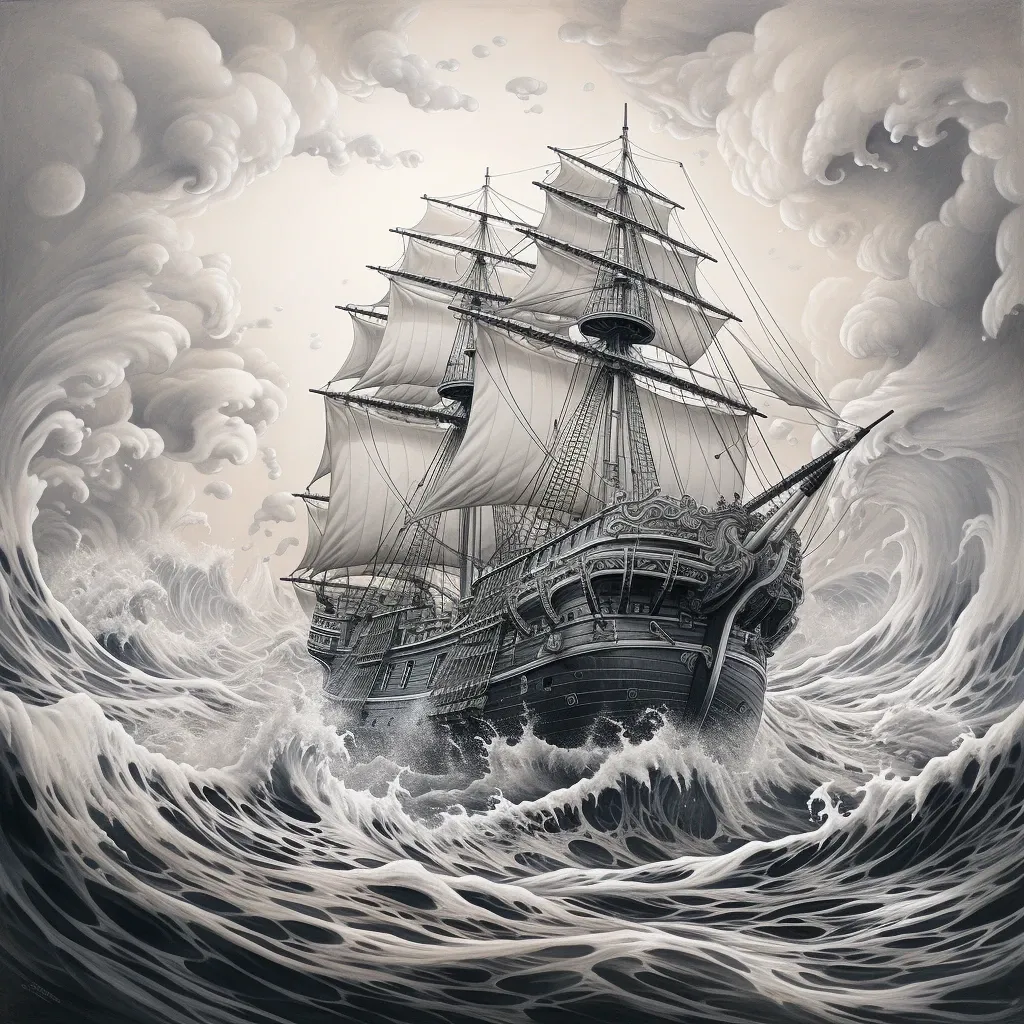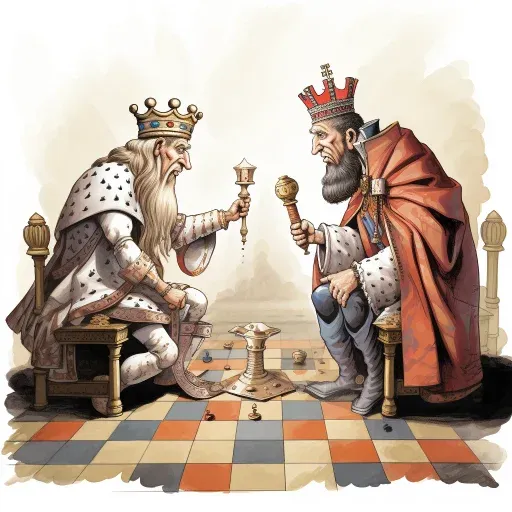
Heading

Tragedy: The White Ship was a vessel that sank in 1120, leading to a great tragedy for England.
Impact: The loss of the heir caused a succession crisis and a period of civil war known as The Anarchy.
A good book we like, we explorers. That is our best amusement, and our best time killer
- Roald Amundsen, Explorer
King Henry's Reign: Altered by the White Ship Disaster
The heart-wrenching story that forever altered the course of English history. The White Ship voyage, laden with youthful gaiety and royal pride, destined for an unforeseen catastrophe that cast a deep, indelible shadow over King Henry's reign. This tale of love, bravery, and tragedy is not merely a historical event, but a poignant reminder of the frailty of life and the profound impact of loss. Prepare to traverse the emotional landscape of a king's reign, forever marked by a single, devastating event.
The Promising Prince William: Hope of England's Future
Prince William, the only son of King Henry, was a beacon of hope for the future of England. With his noble character and bravery, he inspired joy and admiration in the hearts of all who knew him. The young prince was not only a beloved son but also the promising heir to the throne. His father, fondly known as the Handsome Scholar, cherished him dearly and nurtured his growth with wisdom and love. The people of England held their breath in anticipation, eagerly awaiting the day when William would ascend to the throne and lead the kingdom to new heights.
A Royal Journey: Venturing Across the Sea to France
One summer, King Henry and Prince William embarked on a journey across the sea to look after their lands in France. Their arrival was met with joy and excitement by their subjects, and the young prince's gallant demeanor and kindness left a lasting impression on all who had the fortune to meet him. The royal visit, while primarily a duty, turned into a joyous occasion that echoed with laughter and merriment. However, as the time came for them to return to England, an air of sadness hung over them, for they were leaving behind the delightful memories they had made.
Podcast
The White Ship: A Voyage of Celebration and Merriment
The return journey was to be made on a beautiful ship with white sails and masts, a vessel specifically prepared for this voyage. The sea was calm, the wind favorable, and the ship was filled with an air of celebration and joy. Music and dance filled the air as Prince William and his young companions reveled in their memories of France and looked forward to their return to England. As the sun set and the moon rose, casting a silvery glow on the ship, they set sail, confident that by the break of dawn, they would have crossed the narrow sea. The joyous atmosphere, however, was fleeting, as the night held a tragic turn of events.
The Tragic Night: A Cry of Alarm and Despair
As the moon hung high in the night sky, all was initially merry on the White Ship. Laughter echoed off the water's surface, the music played, and dancing was in full swing. Suddenly, the joy was shattered by a blood-curdling cry of alarm. The ship had struck a rock. The devastating sound of crashing wood and the frenzied screams of those on board filled the air. The once vibrant vessel was now a sinking tomb, trapped in the cold, dark sea. The shock and fear were palpable as the ship started filling with water, the deadly silent herald of doom for the merrymakers.

The Final Moments: The Prince's Brave Attempt at Rescue
In the heart of this tragic chaos, Prince William showcased his courage and nobility. A small boat had been launched, and William, along with a handful of his bravest comrades, jumped aboard, pushing off the sinking ship. However, in the midst of the turmoil, a cry for help echoed from the doomed ship - it was William's beloved sister. Without a second thought, he commanded his men to row back to the sinking vessel. In a heart-wrenching scene, he stood up, extending his arms for his sister. But fate had a cruel twist in store. At that very moment, the ship lurched forward, plunging into the unforgiving sea. The boat, the prince, his sister, and all the joyful party were swallowed by the merciless waves in an instant.
The Aftermath: King Henry's Unbearable Grief and Loss
The news of the tragic incident hit King Henry like a thunderbolt. His beloved son, the promising future of England, had perished in the cruel sea. The pain was unbearable, the grief insurmountable. His heart was shattered into a million pieces. The jovial king was no more; his spirit had sunk with the ship and his son. His life was devoid of joy, and his laughter was replaced by a grim silence that echoed his heartbreak. It is said that he never smiled again, his heart forever entwined with the tragic fate of his son and the White Ship.
Conclusion
In this tale of the White Ship, we witness the harsh reality of life's unpredictability and the profound grief that follows an unimaginable loss. The hopeful future of England, embodied in the gallant Prince William, was tragically extinguished, leaving King Henry and the nation in a state of inconsolable sorrow. The aftermath of the White Ship's voyage serves as a poignant reminder of the fleeting nature of joy and the enduring impact of loss on an individual's life and reign. This historical event forever reshaped King Henry's reign, casting a shadow over his rule that was never lifted.





